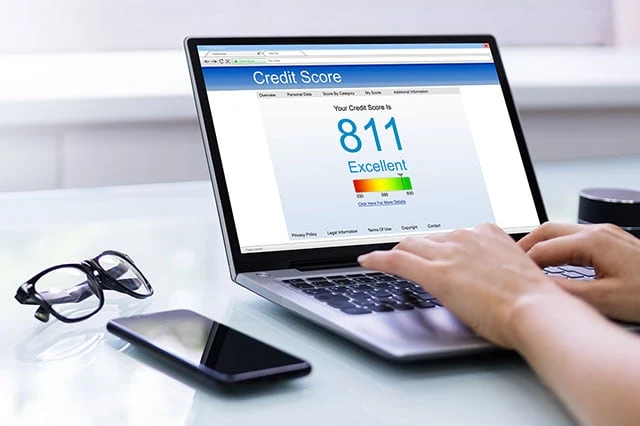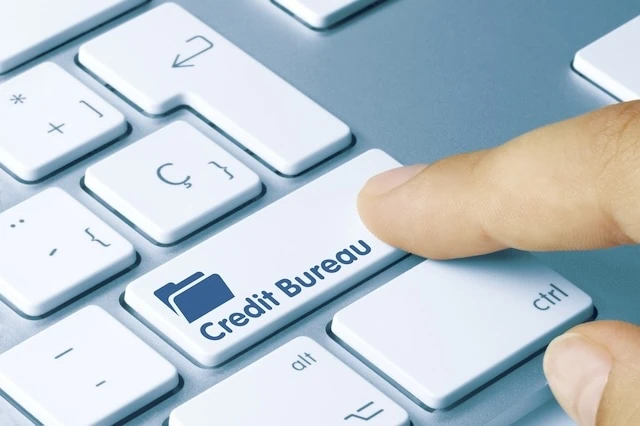Rome wasn’t built in a day, and neither are credit scores.
It’s important to establish credit as early as possible, because the length of your credit history is a major factor in your credit score. And while most people would hear that and immediately think “I need to get a credit card and start making on-time monthly payments” … yes, that’s true, but that’s not the only way to create a payment history.
Whether you fear credit card debt or you already have a card and are looking for more ways to beef up your credit report, you might consider installment loans instead.
But what exactly is an installment loan? Do installment loans improve credit scores? How else can I build credit? The answers to these questions, and more, are detailed below.
Let’s get into the nitty gritty about installment loans so you know whether to get one.
What Is an Installment Loan?

An installment loan provides borrowers with a set amount of money upfront. They then pay back the money, with interest, in fixed, equal monthly installments over a specified amount of time. Your current credit score can affect the interest rate you qualify for on an installment loan.
An installment loan is different from revolving credit. Revolving credit, such as a credit card, is a credit line that stays open as you make payments. Unlike with an installment loan, more money becomes available to borrow as you pay down the balance.
Types of Installment Loans

There are several types of installment loans, including, but not limited to, the ones listed below.
Mortgages
Mortgages are used to buy a home. There are many different types of mortgages, but typically these installment loans are repaid over 15 to 30 years. You’re unlikely to get approved for a mortgage unless you already have a credit history and good credit score.
Auto Loans
Buying a vehicle, whether new or used, can be a big expense. Auto loans help you make that purchase. Usually, an auto loan has a repayment period of two to seven years. These loans are secured by the vehicle you buy.
Student Loans
You don’t need to be a personal finance writer to know that student loans help borrowers pay for postsecondary education. While most installment loans have you begin monthly payments right away, student loans usually let you wait until after you’re done with school and a grace period has passed. Depending on the student loan, interest might or might not accrue right away.
Personal Loans
Personal loans can be used for just about anything. You might use one to consolidate existing debt, do home renovations, or get your car repaired.
Payday Loans
Payday loans are a type of short-term installment loan characterized by high interest rates. Typically, they are only for small amounts of money.
Let me be as clear as possible: I do not recommend taking out a payday loan to establish credit. These are considered predatory loans and in fact are illegal in some states.
Can I Establish Credit With an Installment Loan?

Yes, an installment loan can help you establish credit and improve your credit score. But to do so, it needs to be reported to the credit bureaus, so make sure your loan provider reports your payments.
How Do Installment Loans Help Build Credit + Improve Your Credit Score?

There are a few ways installment loans can build or improve credit scores.
Creates a Payment History
The most important factor in your credit score is a track record of consistently making on-time payments. Payment history accounts for 35% of your FICO score. As you pay down your loan balance, you’re showing lenders your ability to make timely payments.
Diversifies Credit Mix
It looks good to have different types of accounts, such as an installment loan and revolving credit, on your credit report. Credit mix accounts for much less of your credit score than your payment history (10% of your FICO score, to be exact), but it can still give your score a small boost. That being said, it’s possible to have a good credit score without a broad mix.
Lowers Credit Utilization
Another significant factor (30%) for your FICO score is overall credit utilization. Your credit utilization ratio is the percentage of your available revolving credit that you actually use.
Credit utilization is based entirely on revolving credit, so an installment loan in and of itself won’t improve your utilization rate. However, if you use an installment loan to pay off credit cards or consolidate debts, that would lower your credit utilization and could improve your credit score.
Can an Installment Loan Harm My Credit?

Yes, installment loans can hurt your credit score—if your payment history shows late or missed payments.
Plus, when you apply for the loan, the lender’s inquiry into your credit file might temporarily lower your score, particularly if you’ve recently had other such “hard” inquiries. Your score generally won’t suffer if you are shopping for a mortgage or auto loan and apply to several lenders during a short period of time. But if you apply for multiple credit cards or other types of loans in quick succession, that can hurt your score because it suggests you’re seeking credit you can’t afford.
Let’s say you already have student loans, auto loans, a mortgage, and credit card debt. Getting an installment loan could increase your debt-to-income ratio to an amount that looks bad to lenders.
How Else Can I Build Credit?

You can also establish credit with revolving accounts, a credit builder loan, or any other account that reports your activity to the credit agencies. As previously mentioned, credit cards are a type of revolving account. Before you can get approved for an unsecured credit card, you may need to open a secured credit card. Secured credit cards require a deposit you then borrow against.
A credit builder loan lends you money, but holds it in a bank account while you make payments. Once you’ve made all the required payments, the loan amount gets released to you. There is even a service that lets you build credit through a savings account.
CreditStrong Revolv

- Available: Sign up here
- Price: $99/yr.
- Platforms: Desktop, web
CreditStrong Revolv helps you instantly build revolving credit without needing to make a monthly payment. This credit line may boost your credit score by decreasing your overall utilization.
Revolv adds $1,000 of revolving credit, with a zero balance, then reports this to all three major credit bureaus and improves your credit utilization ratio. Users have the option of adding monthly payments—via an installment loan, where loan money is placed in a savings account in your name, and you pay back the loan from the savings account—to increase their credit lines. Every time you make three consecutive on-time monthly payments, the limit is increased by $250; you can improve your credit line to a total of $3,000. Revolv also comes with a free monthly FICO score.
Why not just get another credit card? You certainly could. But one advantage of Revolv over getting another credit card is that Revolv doesn’t require a hard credit pull. If you want to avoid the temporary credit score decrease that sometimes follows a hard inquiry, this is a good option. Additionally, since Revolv has a 0% interest rate, you avoid accumulating additional debt.
Both a credit card and Revolv might temporarily lower your score if they reduce the overall age of your credit history, but if that does happen, the rebound is usually fast.
Some users choose to combine it with one of CreditStrong’s installment credit plans—Instal or CS Max. Users can cancel their CreditStrong accounts at any time without any penalties. Accounts are only available to U.S. residents who are at least 18 years old. It’s available in all states except for Wisconsin and Vermont. Sign up today.
- CreditStrong Revolv is a credit-building solution that doesn't involve signing up for a credit card.
- Revolv adds $1,000 of revolving credit to your credit profile and reports this to all three major credit bureaus, which improves your credit utilization rate. Over time, you can build your credit line up by $250 increments up to $3,000.
FreeKick

- Available: Sign up here
- Price: Free (Requires $3,000 deposit)
- Platforms: Desktop; mobile-friendly website
FreeKick is an FDIC-insured savings account with built-in credit-building services and identity protection.
FreeKick builds credit for users between the ages of 14 and 25. Rather than building credit from spending, kids can establish credit by saving. The primary account holder must be at least 18 years old, while sponsored account holders must be at least 14. Credit building starts at age 14, and once the teen becomes an adult, you can activate credit reporting to all three major credit bureaus. The service requires a $3,000 deposit and includes credit building for up to three children.
In addition to building credit, this interest-bearing bank account (currently 1.01% APY) includes credit monitoring and identity protection. FreeKick immediately starts searching and monitoring the internet and the dark web for illegitimate uses of users’ Social Security numbers and other personal information. Protection extends to up to two adults and up to six children ages 0 to 25. It includes $1 million of identity theft insurance for each family member, as well as concierge-level white glove identity restoration.
Plus, when your school or school-led organization (PTA, PTO, etc.) partners with FreeKick, the company makes a cash donation to the account holder’s school organization, as well as recurring donations each year the account remains open. Sign up today.
- FreeKick is a credit monitoring and identity protection product that parents can also use to help build credit for their kids from age 14 to 25.
- FreeKick begins building a credit history for teens starting at age 14; it then starts reporting to the credit bureaus once they become adults.
- The credit-building product also includes credit monitoring and identity protection for the whole family.
Do Installment Loans Help Build Credit: FAQs

Do installment loans show up on a credit report?
It depends. An installment loan is often reported to at least one credit bureau, but this isn’t always the case. Only reported loans show up on credit reports. If your installment loan isn’t reported, then it won’t show up on your credit file.
Are installment loans worth it?
An installment loan can be a great way to cover a large expense and keep more liquid funds in your bank account. For example, you may need a new car fast so you can get to work. An auto loan lets you quickly get a new vehicle you can pay off little by little. The fact that it can improve your credit rating is a bonus.
Overall, installment loans tend to be worth getting, provided you get a low interest rate or have the ability to refinance a high rate later. However, you shouldn’t take out an installment loan if you don’t have a large expense to cover. Don’t take out these loans for the sole purpose of building credit.
Which is better: An installment loan or revolving line of credit?
Revolving lines of credit, such as credit cards, are better for ongoing credit needs. You can pay for almost anything with a credit card. As long as you pay off your balance in full each month, you won’t be charged any interest. However, if you can’t pay off your full balance, you face high interest rates and your outstanding balance can snowball.
An installment loan is better for a large expense you can’t afford to pay off all at once. You need to pay interest on an installment loan, but the rate is typically much lower than credit card rates.
Do installment payments help your credit score?
Assuming you consistently make on-time payments for your loan and your lender reports your payments to at least one credit bureau, installment payments can improve your credit score.
However, if you miss payments or frequently pay late, it can lower your credit score. Some providers don’t report your payments, which doesn’t help your score, either.









![How to Get Free Money Now [14 Ways to Earn Money Today] 26 how to get free money](https://wealthup.com/wp-content/uploads/how-to-get-free-money-600x403.webp)
